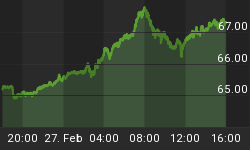Maybe times are tough. Maybe you’re not a millionaire. Maybe you’re one of the many struggling to stay afloat with enormous piles of consumer debt, or mountains of student loans to pay off. Then, you stumble upon a wallet full of money in the street. Do you keep it, or do you return it to its owner?
If you choose to return it, would you feel as if you had gone above and beyond, breaking the norm in some way?
Well, you shouldn’t. As it turns out, people are more honest than we might think.
According to new research published Thursday in the Science journal, a majority of people would easily resist the temptation to keep the wallet.
Research conducted for more than two years in 40 countries and 355 cities, and concerning over 17,000 “lost” wallets proved that people are, at heart, rather honest.
More surprising still is proof from the study that people would more likely return a wallet full of money than they would an empty one.
So where will you have the best luck should you lose your wallet?
For empty wallets, Switzerland topped the list of honest countries included in the study, with 74 percent of empty wallets returned.
But for wallets full of money, it was Denmark, all the way. Denmark topped with list with an 80-percent return rate for full wallets.
Don’t, however, be careless in Peru, which bottomed-out the list with only a 10-percent return rate for wallets with money.

(Click to enlarge)
Source: Science
Not only are the results of the study interesting, but the methodology is worth a bit of narrative, as well.
It all started with a team of behavioral researchers pretending to be tourists. They would hand in wallets to the front desk at banks, post offices or other institutions claiming to have found them on the street.
At this phase of the investigation, wallets either contained no money or very little--around the equivalent of $15 in local currency.
For the U.S, UK and Poland, they upped the ante, testing honesty with wallets containing $100.
And the methodology made sure that “finders” had every means possible to easily return the wallets to their rightful owners. The decoy wallets would contain grocery lists, business cards and other identifying elements in local languages.
When they started out, the researchers were not overly optimistic about honesty.
The end results were a surprise both to the study’s lead author, Alain Cohn from the University of Michigan, and to the 300 economists surveyed for it as well--all of whom predicted people would more likely hang on to a wallet with money.
"The highest reporting rate was found in the condition where the wallet included $100," Cohn says.
Forty-six percent of wallets with no money were reported, compared with 61 percent of those with about $13 and 72 percent of those with nearly $100.
“When a behavior is surprising, that’s when you want to be cautious about over interpreting what this means for society,” the Washington Post cited Abigail Marsh, psychologist at Georgetown University, as saying. “But what I like about this study is that is supports so much of the data out there . . . that most people are trying to do the right thing most of the time.”
Altruism is how the study explains the unexpected behavior. In other words, people actually care about others--even strangers. If wallets contain a significant amount of money, or keys and other important items, they are more likely to be returned as the finder empathizes with the owner. son who lost it. In fact, these wallets were about 10 percent more likely to be reported than those with no keys.
But there’s another psychological element to the behavior, too. People are apparently reluctant to view themselves as dishonest.
"The larger the amount of money, the more worried you are about your self image — the more difficult it is to convince yourself that you're still a good person,"Cohn said.
Although study results may revive our hope in mankind, what about those who didn’t return the wallets?
In the U.S., 43 percent failed to return wallets with money in them. In Australia, it was 31 percent. Canadians, Australians, Croatians, New Zealanders, Czechs, Swedes, Danes … and a few others all made a more honest showing than Americans.
Overall, though, countries with higher rates of primary education were shown as more likely to see high rates of lost wallets being reported.
Of course, wealth could also be a factor here.
"Now the problem is that we don't really know whether wealth affects honesty or it's the other way around," said Cohn.
By Josh Owens for Safehaven.com
More Top Reads From Safehaven.com:
















